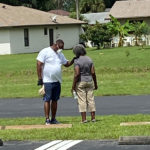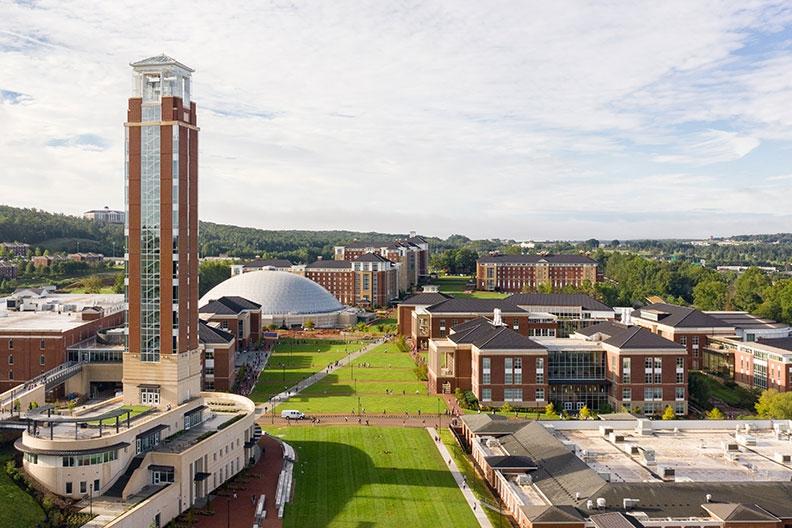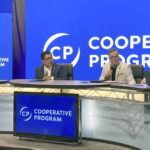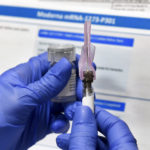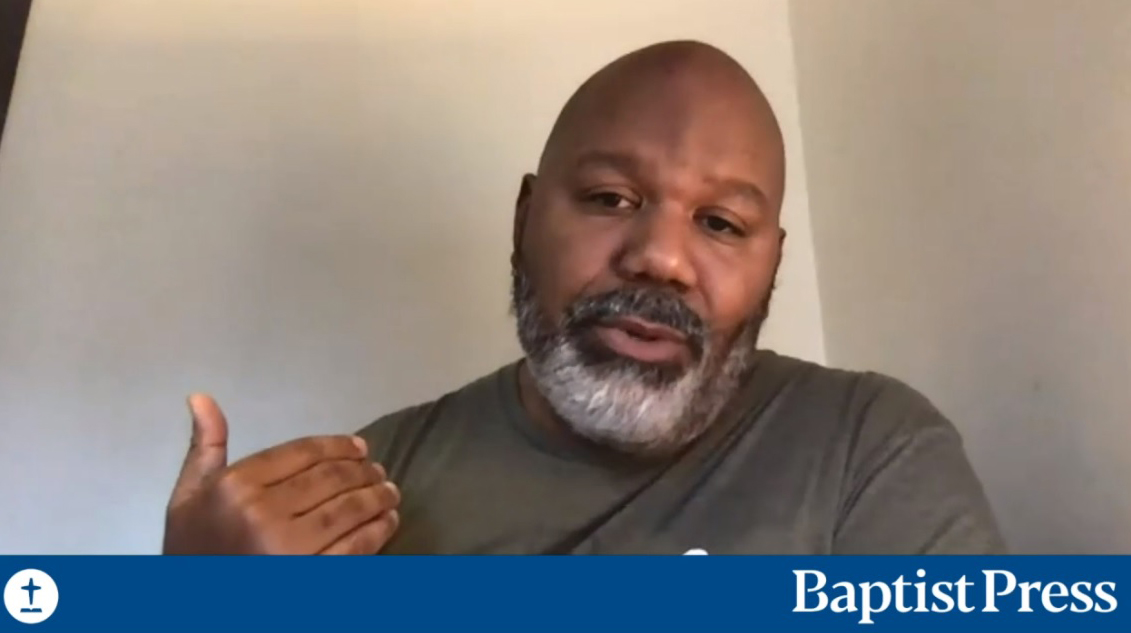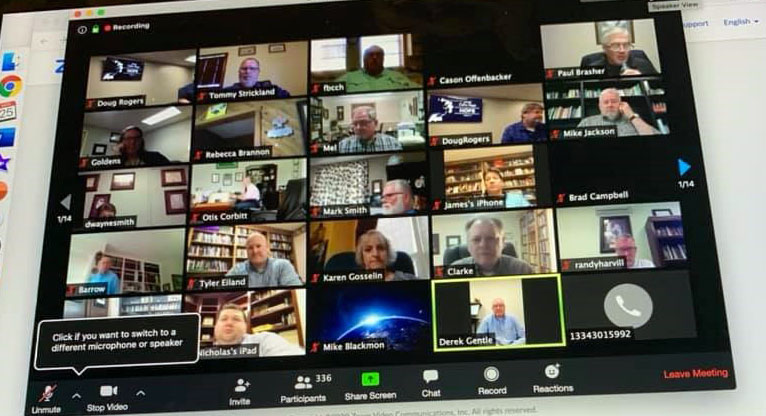
MYRTLE BEACH, S.C. (BP) – Members of the Baptist Nursing Fellowship had already witnessed, literally, the realities of COVID-19 in emergency rooms across the country before Nov. 21 last year. That day it became personal, however, when the group’s executive director, Lori Spikes, died after being hospitalized with the illness.
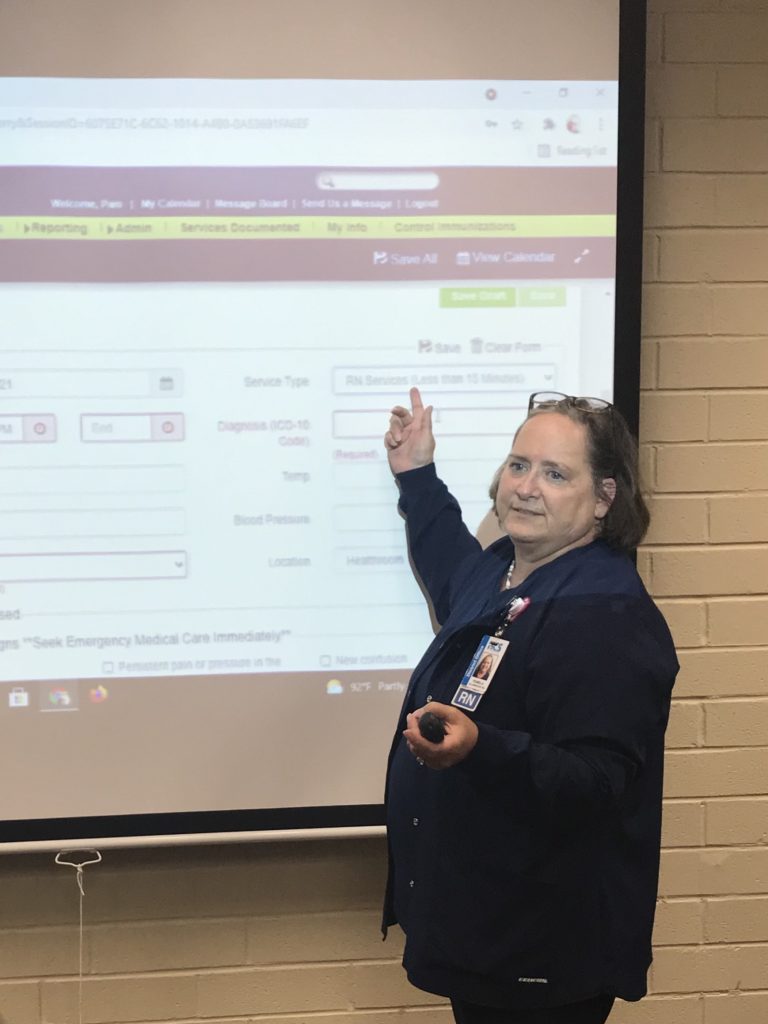
“She was steps away from being able to receive the vaccination,” said Pam Allsbrook, coordinator of health services for Horry County Schools in Conway, S.C., and a friend of Spikes. “She was counting the days.”
Allsbrook, who also serves as BNF’s Education chair, shared a similar background with Spikes. Both were adults when they accepted Jesus as Savior. Both believed in the nursing profession as one where the Gospel can be communicated in the most trying times of life. Allsbrook, however, was able to receive the Pfizer vaccine when it became available in January.
Allsbrook’s occupation, however, allowed her to receive the Phizer vaccine when it became available in January. For her it couldn’t come soon enough, providing peace of mind as she led 81 nurses working with approximately 49,000 students across 51 schools. In addition, she works part-time at a local emergency room.
The nursing profession has remained the most trusted in America since Gallup began keeping track in 1999 except for one year – in 2001, when firefighters earned the highest score ever at 90 percent following the attacks of 9/11. Yet, the spread of the highly contagious COVID-19 Delta variant has led many of them to feel they are not being heard.
BNF President Debby Akerman said the injection of politics into health matters hasn’t made nurses’ jobs easier.
“Nurses have to focus very hard on what they’re doing with a patient and avoid politics,” Akerman said. “I respect people’s opinions. But unfortunately, there are so many theories and mistrust that it goes back to the sociopolitical ramifications. …
“I can’t imagine not wanting a vaccine that has shown it protects and mitigates against the degree of this disease. Nurses try to not be judgmental, but we see the living statistics on those who are vaccinated and those who are not.”
Today, the profession is unrecognizable to those entering the workforce when compared to their first class in nursing school.
“The risk factor has multiplied exponentially,” Akerman said. “No one expected to be gloved, gowned and masked for so much of the job. You didn’t expect a pandemic.”
The current nursing shortage, she said, can be attributed to those in the pipeline who haven’t been able to get the required experience for their degree. As hospitals have had to focus on caring for those with COVID-19, students are unable to receive instruction for other areas of care.
“Emergency rooms work differently now,” Akerman said. Since the leading questions primarily ask about COVID symptoms, there is less time for addressing other illnesses. “It’s changed the whole paradigm of how an ER operates and required new nurses to be fast learners.”
Akerman said one word that could be used to describe today’s nurses is “resilient.”
“They’re trying to raise their family and balance their career. Retired nurses are being called back into practice,” she said. “One member of our local Baptist Nursing Fellowship gave up every responsibility outside of nursing to help meet the need because she was in charge of coordinating the intensive care unit. She then had to set up a second intensive care unit just for COVID patients.”
Akerman was a nurse for 30 years in Maine before retiring with her husband to Myrtle Beach. Due to the amount of time since her retirement, she is unable to re-enter the field. In her role at BNF, she oversees efforts such as organizing prayer support, online conferences and encouraging self-care programs.
“Nurses can be so involved in caring for others that they neglect caring for themselves. It’s hard for them remember that, because nurses nurture others,” she said.
Allsbrook encouraged people to talk to seek out trustworthy information about COVID-19.
“If you want to get factual information, go to your health care provider or someone you trust in the medical field,” she said. “I’ve talked with others who were concerned about side effects of the vaccine, so I pointed out the long-term or permanent side effects we’re seeing from COVID.
“We do all kinds of things for preventative health care. We watch our diet, wash our hands, take high blood pressure medication. This is another that will help you remain healthy. …
“The most significant thing we can do as parents, educators and students are those preventative measures anyone can take. If you don’t want to get the vaccination – and I’m all for your right to decide that – then take other steps such as masking, hand-washing and being alert for symptoms so you don’t send your child to school if they’re sick.”
A member of Maple Baptist Church in Conway, Allsbrook pointed to the death of a well-known member of the community from COVID-19 a few weeks ago. The effect on others was immediate. More young people received the vaccine. Many church members previously opposed to the vaccine also got their first shot.
COVID’s physical effects are obvious. What may be less so is the impact both psychologically and spiritually, Akerman said.
“People ask nurses why God would let this happen,” she said. “Nurses have to be strong every day to be hope-filled. We don’t want our ‘hope buckets’ to be depleted, so we need to constantly be in God’s Word and constantly encourage each other.”



